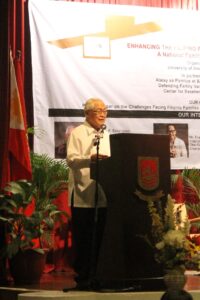
“We absolutely need to connect the dots,” said Dr. Jesus P. Estanislao, founder of the Center for Excellence in Governance (CEG), to the more than 270 participants of the National Family Workshop Forum held at the University of Asia and the Pacific (UA&P) on January 25, 2024.
“There is a gap between the things that we are preached to and about and the things that we actually practice. That is the most serious challenge that we face at this time,” the co-founder of UA&P declared.
The workshop forum, entitled “Enhancing the Filipino Family: A Gift to the Nation,” aims to discuss the challenges confronting Filipino families and involve the participants in formulating action plans to respond to these challenges.
Hence, in the executive keynote address Dr. Estanislao delivered on “The Filipino Family: Seedbed of a Culture of Excellence,” the need to bridge the gap between values as preached and virtues as practiced was given loud and clear.
“We absolutely need to connect the dots between what we say and what we do, between our convictions and our ideals and our actual day-to-day actions and practices in every aspect of our life, not only in our studies, not only in our work, not only in our family, but in all our social relations.”
Dr. Estanislao asserted that to do this, every transformation program needs to focus on the core values that they believe in and would like to establish as the very foundation of that institution. He then laid three simple steps on how to “connect the dots”: any kind of transformation program rooted in core values must be for the Filipino, by the Filipino, and of the Filipino.
For the Filipino
“At the end of the day, the core values must mean something for individuals. In other words, what we need to do is to make sure that all the operations of every parish or institution serve the needy, the poor, the constituency… the stakeholders of the institution. That’s the first thing. We’re here to serve. How can we serve better, much more efficiently, much more effectively?”
“That’s the most effective way of transmitting values, the idea that we’re here not for ourselves but in service of others, and, therefore, the only aim of transformation is that this for the Filipino: this is for the poor, for the Navy, for the Army…this is for everybody who wants to have their passport given to them in record time,” Dr. Estanislao expounded.
“We cannot say we’re great Filipinos but we do not help other Filipinos. Transformation has to be for the others.”
UA&P President Dr. Winston Conrad B. Padojinog, in his opening remarks, rallied the teachers, students, mentors, and parents to invest time in their families.
“Your effective role, all of you here present, in protecting, preserving, and enhancing the family can create a ripple effect positively impacting every aspect of our nation: economically, socially, and morally,” he said.
“By nurturing families, we ultimately are nurturing the very essence of our nation.”
Hon. Jose Garcia III, who concluded the forum, echoed the same sentiment. In narrating the effects of implementing the EDUCHILD program in the province of Bataan where he sits as governor, he touched on how the parents who went through the program were empowered not only to lead their own families but also lead in their community.
“Through this program, we were able to solve community problems on health, education, job generation, and peace and order,” stated the Bataan governor.
By the Filipino
“Second, it has to be owned by the others,” spoke Dr. Estanislao, who admitted that silos within organizations are detrimental. “The finance people do not want to talk to the marketing people. Every Filipino wants to operate by himself. It’s an independent republic. That cannot be.”
He emphasized that the internal value system will have to be so consistent for a business to be efficient and cost-effective, and yet this process is often disregarded.
“We have forgotten that transformation is by the people. Everybody gets involved,” he said, citing the case of a conglomerate company whose renewable energy ventures are doing well not only in the Philippines but in Southeast Asia because everyone in the company got involved.
Dr. Estanislao later presented the qualities that should characterize the work made by the Filipino: efficient, effective, professional, knowledgeable, scientific, and systematic.
He also proposed to the audience to not just do things separately of themselves. Instead, he encouraged them to connect with the others.
“There are institutions that are already transforming themselves. Why can’t we connect the dots? Can you imagine if the business community and the local government unit in every place in this country would be working with the school districts, with the school superintendents, for a program of transformation?”
“We’ve got to reach every Filipino, and therefore we have to work with other institutions that are already doing their bit.”
Of the Filipino
Dr. Estanislao continued, “If you want transformation, it cannot be only for the others; it cannot only be by Filipinos. Eventually, it will have to be of the Filipino himself, of the individual himself or herself…that all of us become better by the work that we do. In the words that are always repeated in this university, we sanctify ourselves by the work that we do, by the quality of work that we do.”
This relation between how a person conducts himself in private and in his workplace is not lost on the Armed Forces of the Philippines (AFP). The Philippine Army, in particular, told Dr. Estanislao very clearly why there is a need to bring all of the core values of the AFP to the families of every officer and enlisted personnel.
“Sir, we cannot have a good soldier unless he is a good family man,” the Army confessed.
Dr. Estanislao said to his audience in UA&P, “We’ve got to do something about the family because it is there that you produce good men, and what the Army needs is good men.”
Inspirational speaker and author Mr. Francis Kong, who talked in the family forum about “The Filipino Family Today, Now: Challenges and Responses,” pointed out the important role of fathers in bringing up children with good moral values. He lamented how honoring one’s father and mother is not taught in many families and how parents are considered equivalent to friends.
“My children have many friends,” said Mr. Kong, “but they only have one father. My role as a father should not be reduced to the role of being a friend.”
Dr. Estanislao affirmed that it is in the family where the values and the virtues of a culture of excellence, integrity, family unity, civic consciousness, patriotism, and global charity are cultivated, but values originate from one Person.
“Values have their resonance and their origin and their impetus from one Person, and that Person is Jesus Christ. If you talk about values, you cannot dissociate them from being a very good person of God, committed to God.”
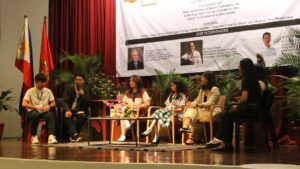
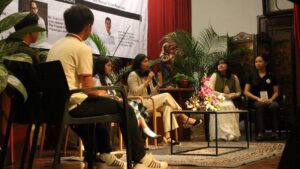
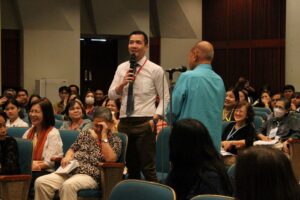
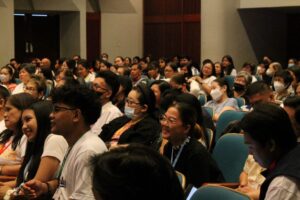
Position paper
The family workshop forum, organized by UA&P in partnership with Alalay sa Pamilya at Bayan Foundation, Inc., Defending Family Values Foundation, Inc., and the Center for Excellence in Governance, produced a position paper entitled “Ang Pangarap ng Pamilyang Pilipino (The Aspiration of the Filipino Family),” which insists that it is of the highest importance to protect the Filipino family values and presents short- and medium-term responses to the following areas beset by challenges: family structure, sexuality and sexuality education, faith and Philippine heritage, and social media and teenage lifestyle.
“To ensure the health of the Filipino family is to nurture the Philippine nation,” the prologue of the position paper states. “As the primary educator, the family instills beliefs and shapes the behavior of individuals that ultimately define the nation. Therefore, it is paramount to protect, preserve, and enhance the values developed for the and by the family. These values—responsibility, empathy, integrity—ultimately define the Philippine cultural heritage and identity.”
The position paper is among the materials to be presented and distributed by Gov. Garcia in his talk at the International Federation for Family Development Congress to be held in Cebu City on February 24-25.#
Photos from the commission work on family structure, sexuality and sexuality education, faith and Philippine heritage, and social media and teenage lifestyle:
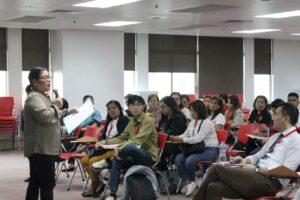
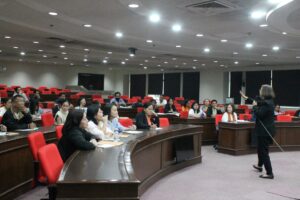
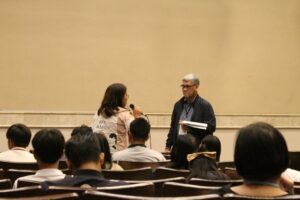
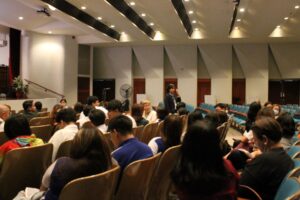
Photos from Danielle Isabelle Gomez of UA&P. Banner photo from Unsplash.
Leave a Reply